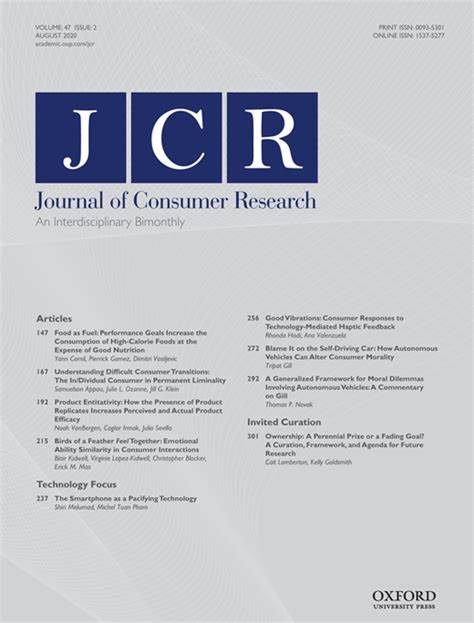Refund Psychology
IF 6.4
1区 管理学
Q1 BUSINESS
引用次数: 0
Abstract
Abstract Consumers frequently receive refunds from prior purchases. In this research, we examine if money refunded from previous purchases is more likely to be spent than money that does not go through a refund process. Across nine pre-registered studies, we test how consumers’ willingness to spend depends on the transaction history of their money. We find that, when people receive a refund and do not need to replace the originally purchased item, they are more likely to spend the refunded money on a discretionary purchase than they are to spend non-refunded money that is otherwise identical. We suggest that this pattern arises because refunded money is earmarked as “spending money” at the time of the initial purchase and then retains that earmark even after the refund is issued. When refunds arrive, therefore, they seem free from obligations and easy to spend. This research documents the psychology of purchase refunds, a topic largely unaddressed in the mental accounting literature to date.退款心理学
消费者经常收到之前购买的退款。在这项研究中,我们研究了从以前的购买中退回的钱是否比不经过退款程序的钱更有可能被花掉。在9项预先注册的研究中,我们测试了消费者的消费意愿如何取决于他们的资金交易历史。我们发现,当人们收到退款并且不需要更换原购买的物品时,他们更有可能将退款用于可自由支配的购买,而不是将未退款的钱用于其他相同的购买。我们认为,出现这种模式是因为退款在最初购买时被指定为“支出资金”,然后即使在退款发出后仍保留该指定用途。因此,当退款到达时,他们似乎没有义务,很容易花掉。本研究记录了购买退款的心理,这是一个迄今为止在心理会计文献中尚未解决的话题。
本文章由计算机程序翻译,如有差异,请以英文原文为准。
求助全文
约1分钟内获得全文
求助全文
来源期刊

Journal of Consumer Research
BUSINESS-
CiteScore
12.00
自引率
9.70%
发文量
53
期刊介绍:
Journal of Consumer Research, established in 1974, is a reputable journal that publishes high-quality empirical, theoretical, and methodological papers on a wide range of consumer research topics. The primary objective of JCR is to contribute to the advancement of understanding consumer behavior and the practice of consumer research.
To be considered for publication in JCR, a paper must make a significant contribution to the existing body of knowledge in consumer research. It should aim to build upon, deepen, or challenge previous studies in the field of consumption, while providing both conceptual and empirical evidence to support its findings.
JCR prioritizes multidisciplinary perspectives, encouraging contributions from various disciplines, methodological approaches, theoretical frameworks, and substantive problem areas. The journal aims to cater to a diverse readership base by welcoming articles derived from different orientations and paradigms.
Overall, JCR is a valuable platform for scholars and researchers to share their work and contribute to the advancement of consumer research.
 求助内容:
求助内容: 应助结果提醒方式:
应助结果提醒方式:


